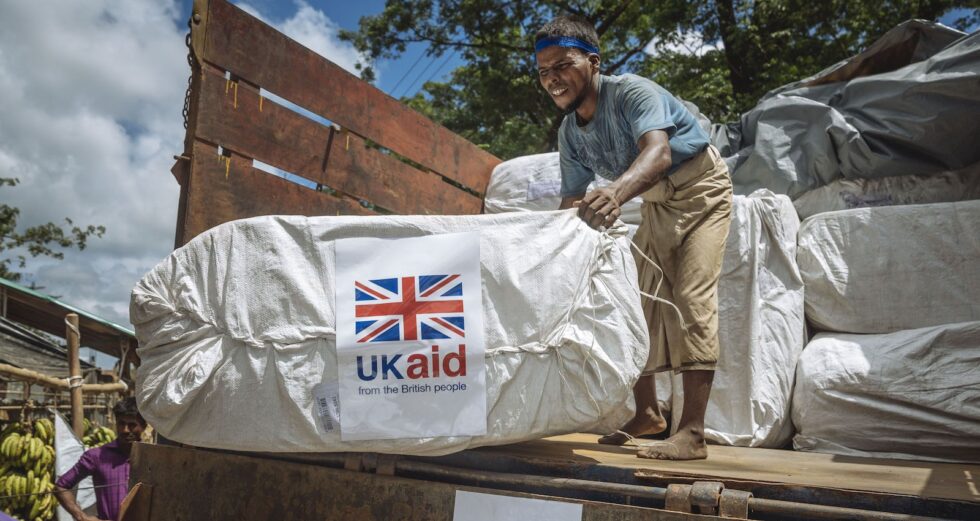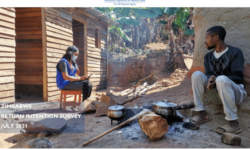
By William Worley, Raquel Alcega
Cuts to the United Kingdom’s aid budget will hit lower-income and fragile countries harder than middle-income nations, some of which will enjoy aid budget increases, a Devex analysis of government figures has shown.
U.K. bilateral aid to countries classified by the World Bank as low- and lower-middle-income will fall by a total of £1.2 billion ($1.6 billion) next year, while overall aid to middle- and upper-middle-income countries will fall by just £209 million overall, according to Devex’s analysis. In terms of proportion, both groups of countries are losing roughly half their funding from the previous year.
‘Upheaval and crisis’: FCDO’s first year
FCDO was forged in a year of pandemic and political upheaval, both in the U.K. and abroad. Twelve months in, how has it performed, and what — if any — are its biggest successes?
The information was revealed in the Foreign, Commonwealth & Development Office’s annual report, showing planned aid spending allocations for 2020 to 2021 and 2021 to 2022. It is the new department’s first annual report and also its first public document illustrating the impact of the aid cuts policy, caused by moving from spending 0.7% to 0.5% of national income on official development assistance.
Precise information on which programs were affected was not included, and the document even highlighted some programs that it had cut significantly as evidence of the FCDO’s achievements.
“The resulting portfolio marks a strategic shift, putting our aid budget to work alongside our diplomatic network, our science and technology expertise and our economic partnerships in tackling global challenges,” said the report of the spending allocations.
“These cuts completely undermine the stated objectives of the government.”
— Sarah Champion, chair, International Development Committee
But the report also came with a caveat which hinted at the possibility of further program cuts to come: “All future plans are subject to revision as, by its nature, the department’s work is dynamic,” said the document.
The department has also increased some aid spending since the aid cuts, such as to Afghanistan following the Taliban takeover, but not revealed where the money came from and if it meant cuts to other projects. The foreign secretary will lead an “interim stocktake of the UK ODA portfolio at the mid-year point to assess spending plans across departments” and meet the 0.5% target, according to the report.
Spending on the climate and environment, health, humanitarian, trade, and education and gender equality sectors is all going down — though gender equality is set to receive an injection of non-ODA funds. Of other thematic areas that receive a blend of ODA and non-ODA finance, decreases will be seen in multilateral subscriptions to international organizations, international finance, the scientific adviser, and the conflict, stability, and security fund.
But spending will go up in some sectors, including open societies, sanctions, economic cooperation and growth, and the Strategic Engagement Directorate.FCDO Program Allocations in 2020-2021 and 2021-2022 based on data from FCDO’s Annual Report.
In an apparent reflection of the Indo-Pacific tilt policy, the new South East Asia & Pacific Department, or ASEAN Regional Programmes, the department will be allocated £31.5 million next year. Aid to Indonesia will increase by 22% to £14.2 million, and India’s share will go up 33% to £55.2 million. An apparent increase in aid to China relates to the cost of closing programs there, according to the report.
But other, lower-income countries in Asia will see the amount of U.K. aid they receive fall. Aid to Bangladesh, which is home to a million Rohingya refugees and also highly vulnerable to climate change, will drop by 62%, from £189 million to £72.5 million. Pakistan, historically the largest recipient of U.K. bilateral aid, will see it fall by nearly 40%, from £159.9 million to £97 million.
The winners were not limited to Asia. Brazil’s budget allocation skyrocketed by almost 7,000% to £7.8 million from just £110,000 in 2020-2021. Mexico — where Foreign Secretary Liz Truss visited this week — goes from nothing to getting £4.7 million next year.
UK aid watchdog’s delayed mandate reveals tensions with FCDO
ICAI is hindered in carrying out investigations and even hiring staffers as a result of delays to a framework agreement, which is still not on the horizon.
Aid to the relatively stable regions of southern Africa and the Caribbean will have a total increase of £9.6 million, and Egypt will now go from nothing to £4 million — disputing expectations of planned spending falling across much of the Middle East and North Africa.
But fragile and conflict-affected regions will see less spending. In Lebanon, which is experiencing economic collapse, aid is falling by 85%, from £84.9 million to £13.1 million. Syria, the Palestinian territories, Yemen, and the Joint Sahel Department saw cuts between 60% and 70%. Aid to Somalia, where the U.K. has trained the army to fight al-Shabab militants, is falling by 41%, from £121 million in 2020-2021 to £71.2 million next year.
African nations, which were declared a U.K. priority, were also among those hit by smaller budgets. Aid to Kenya, a primary U.K. development and security partner in East Africa, is falling by 39%, from £67.2 million to £41 million.
“This is outrageous and hypocritical,” said Sarah Champion, chair of the International Development Committee, whose unique role is to scrutinize U.K. aid spending.
She added: “These cuts completely undermine the stated objectives of the government that, say, East Africa is a priority region for aid … But where is the strategy here? Where is the rationale? We call these countries ‘priorities’ for U.K. aid, and in some cases even send our troops to help train their security forces. Then we turn round and slash the development money they get. It just doesn’t make any sense.”
Meanwhile, Nigeria, also described as an “important partner” by the Integrated Review, a British government’s foreign policy document, is seeing the aid it receives drop by 55%, from £209 million to £95 million next year.
Janadale Coralde and Miguel Tamonan contributed to the analysis.
Source: DEVEX









